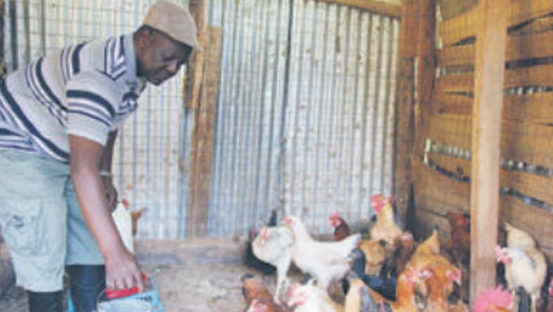×
The Standard e-Paper
Smart Minds Choose Us

Julius Matendechere in his poultry house in Butere, Kakamega County. [Photo: John Shilitsa and Collins Oduor]
Julius Matendechere, 57, goes about his business inside a bungalow turned a poultry farmhouse with a lot of ease. He is tending to over 5,000 chicks aged between one and three weeks. The chicks literally occupy all rooms in the four bedroom mansion, including the store, kitchen, dining, washrooms and any other available space.